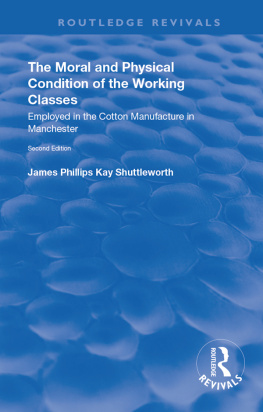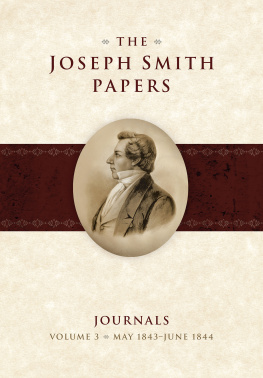CASS LIBRARY OF INDUSTRIAL CLASSICS
No. 20. James A.Mann
The Cotton Trade of Great Britain. Its Rise, Progress, and Present
Extent (1860).
New Impression
No. 21. Alfred Fell
The Early Iron Industry of Furness and District (1908).
New Impression
No. 22. John Watts
The Facts of The Cotton Famine (1866).
New Impression
No. 23. J.R.Leifchild
Our Coal and Our Coal Pits (1853).
New Impression
No. 24. J.R.Leifchild
Cornwall: Its Mines and Miners (1855).
New Impression
No. 25 John Fielden
The Curse of The Factory System (1836).
With a new introduction by J.T.Ward.
Second Edition
No. 26. The Book of English Trades
(1804).
New Impression
No. 27 R.Arthur Arnold
The History of the Cotton Famine (1844).
New Impression
PREFACE.
AMONGST the various features developed in the progress of society, there are some which are the direct result of human forethought, and the direct purpose of which is to produce a certain defined change in the social fabric. Of this class of events, was the formation of the American constitution; and the whole of legislative science may be comprehended under this head.
But, there are other features developed in the progress of society which are not, and which, indeed, cannot be foreseen by the mind of man, but which are, nevertheless, the results of human ingenuity. Of such, was the discovery of the art of printing, and also of the steam-engine. Nothing more was necessary to the discovery of these mighty agents, than the ingenuity or the good fortune of the inventors. And yet these agents, which are so comparatively trivial when judged of by the ingenuity necessary for their development, have altered, destroyed, and created a greater number of elements in society, and in a far more permanent degree, than could ever have been effected by the legislative skill of the wisest of our race.
It is not more than seventy or eighty years since, that a few humble mechanics, in Lanarkshire, distinguished by scarcely anything more than mechanical ingenuity and perseverance of character, succeeded in forming a few, but important mechanical combinations, the effect of which has been to revolutionize the whole of British society, and to influence, in a marked degree, the progress of civilization in every quarter of the globe.
There is something mysterious in the rise and progress of the manufacturing system. A few mechanical discoveries, apparently insignificant in themselves, and almost unnoticed at the time of their appearance, form the nucleus of a system which grows steadily, and marches on silently, and yet, with such irresistible influence as to absorb in a few years, the olden features of society, developing new features, requiring new institutions in accordance with its new developments, and pointing to some new Destiny, ill-understood, yet instinctively believed in by all.
A system, such as this, however anomalous it may appear, cannot be the result of chance. It is equally certain, that it was never planned by human intelligence, for so sudden has been its growth, that we have neither succeeded in fully comprehending it, nor in adapting our social institutions to its new requirements. Moreover, its tendencies are of a marked character. It must, therefore, have a mission. To discover what this mission is, and how it may most speedily and effectively be accomplished, is a task worthy of the intelligent and benevolent mind. Ages of transition are always painful stages in human progress. Faith in the old idea is shaken before the New is defined and acknowledged. They are seasons of activity it is true, but a morbid restlessness rather than an harmonious action is their dominant characteristic. Strong minds doubt, weak hearts despond, and time alone reveals the resolution of the discord in the glories of a succeeding age.
The same incomprehensible power, which amidst the varying proportion of the sexes in the family, preserves an unvarying proportion in the aggregate, has doubtless, destined this new system to effect some mighty change in the physical condition of the human race, which shall prepare the way for a higher sphere of social and moral development.
The writer of these lines, has elsewhere remarked, The past history of our race proclaims the supremacy of force, the selfishness of empire, and the subjugation of mankind, as the prevailing aspect of society. But the rise and progress of the industrial arts, and the extension of a beneficent commerce, indicate, in terms too plain to be misunderstood, the real Destiny of society, and the existence of a new epoch which shall substitute the ploughshare for the sword, and the loom for the battery. The cause of Industry is the cause of humanity. Instead of the subjugation of mankind and the devastation of the earth, let PEACEFUL AND ATTRACTIVE INDUSTRY propose as its highest aim, THE ENRICHMENT OF ALL BY THE CIVILIZATION AND EMBELLISHMENT OF THE GLOBE.Address of the Young Men's Anti-Monopoly Association.
Without Commerce, Manufactures can never flourish, and where freedom of exchange is restricted, production is paralyzed. The progress of science has ever been to throw down the obstacles to a free communication, and to open to the industry of its votaries, a market, wide as the world, for the exchange of its products. The once impassible barrier of the ocean, is now the great highway of nations; and our roads, canals, and railways, are gradually annihilating distance. It has been the unenviable distinction of the statesman of modern times to reverse this beneficent order, and to decree that Commerce, the civilizer of mankind, the nurse of national greatness, and the munificent patron of science, religion, and the arts, shall be fettered with the chains of a restrictive legislation.











